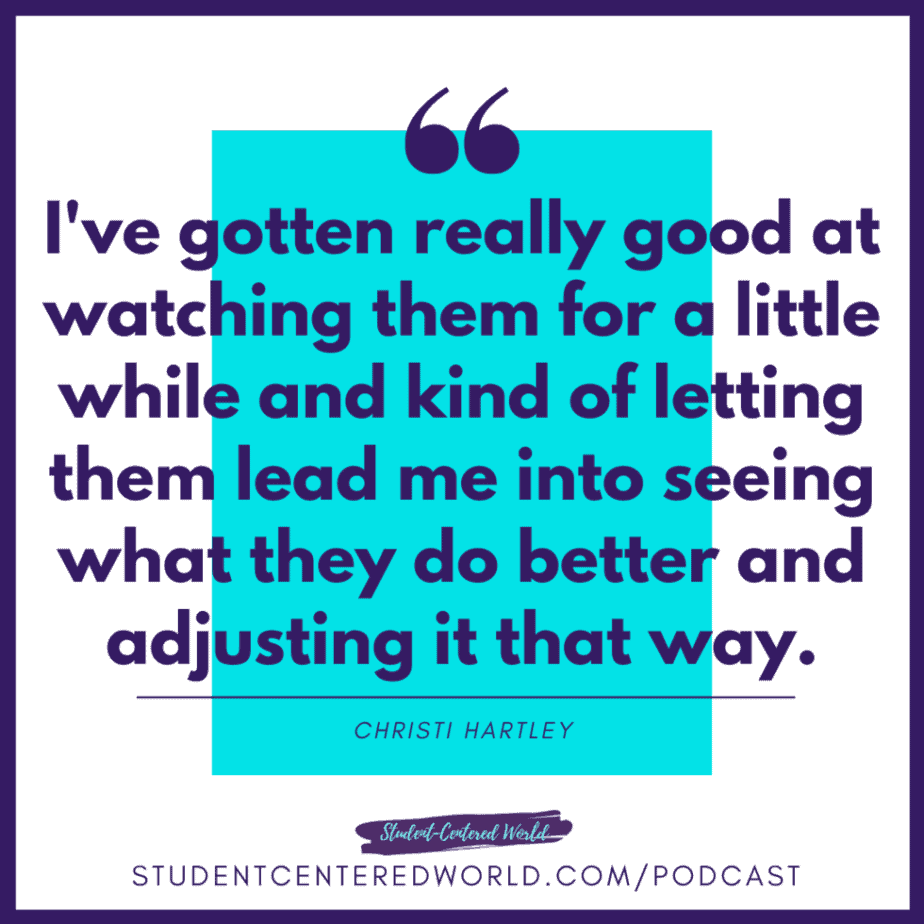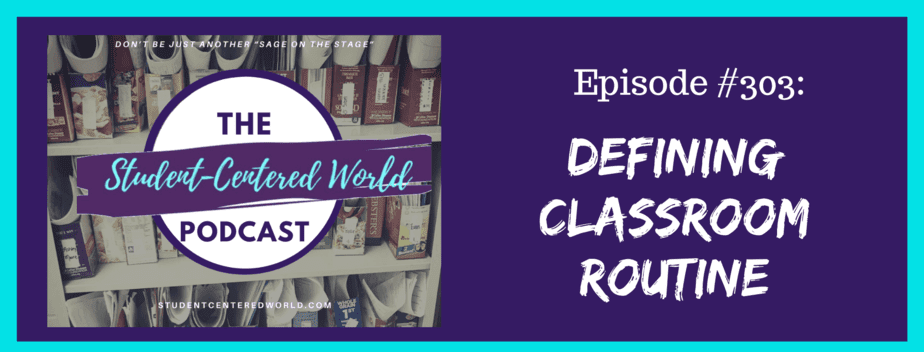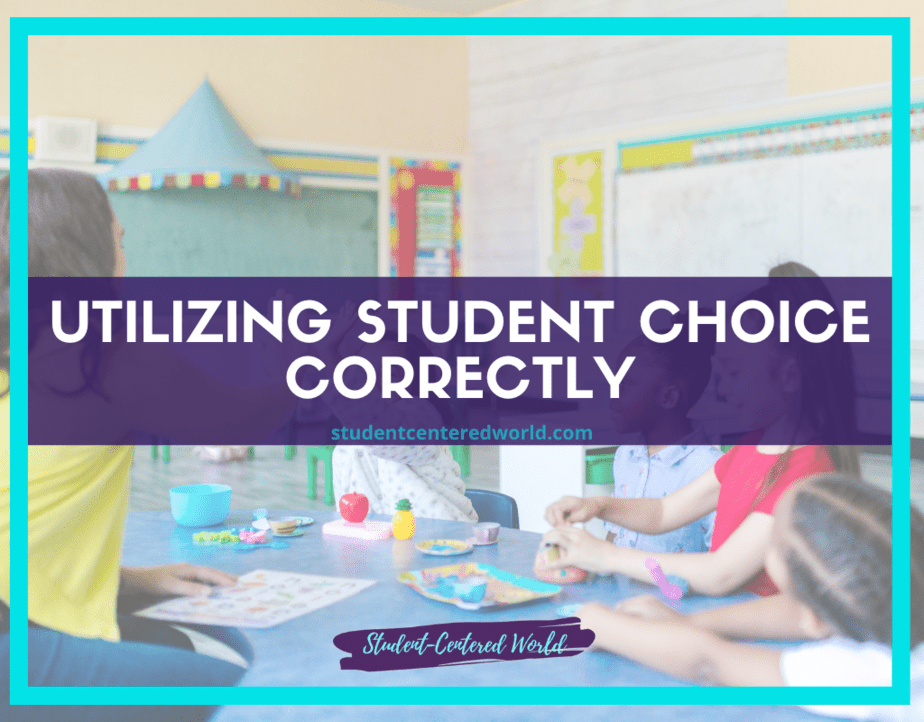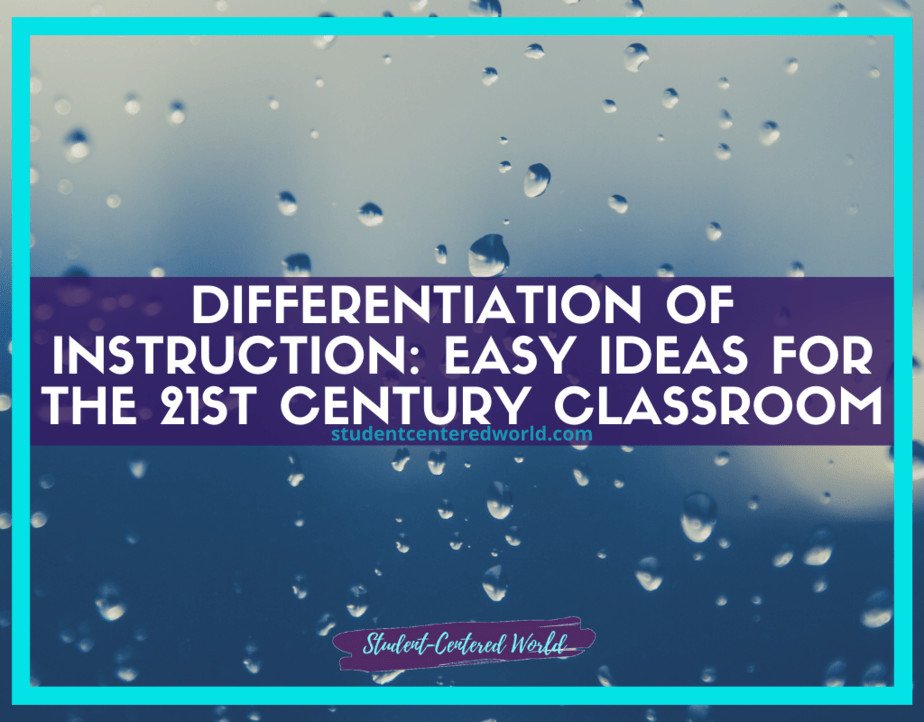Student Needs: How to Meet them in Teaching (and why)
Click above to listen to the podcast episode: “Listening to Your Student Needs with Christi Hartley“
In today’s dynamic and evolving educational landscape, meeting diverse student needs has become a core goal for educators who strive to facilitate both meaningful and impactful learning experiences. Every student has a unique set of needs, influenced by factors ranging from learning styles and socioeconomic backgrounds to emotional and physical well-being.
Christi Hartley, a seasoned teacher from New Mexico, shared her insights on the Student-Centered World podcast, offering a comprehensive look at her adaptive strategies for addressing students’ needs, particularly in remote and hybrid learning environments. Her methods provide an inspiring roadmap for supporting student success, particularly in times of uncertainty and change.
Since this episode originally aired, Christi has retired. Congratulations, Christi! Enjoy the time…you’ve earned it!!
Understanding the Needs of Our Current Students in a Climate of Student Apathy
In the face of rising student apathy, understanding the needs of Generation Z (our oldest students) and Generation Alpha (the youngest cohort currently entering school), has become critical for educators. Born into a world of advanced technology, social media, and global challenges, these students bring a new set of expectations, learning styles, and social concerns to the classroom. Addressing these unique needs is essential in an environment where student engagement is declining, and without the right support, these students may find it harder to connect with traditional educational models.
One significant factor contributing to student apathy today is a disconnect between conventional teaching methods and the highly digitized, fast-paced world Gen Z and Generation Alpha have grown up. For them, learning must be relevant, interactive, and accessible. Standardized testing and rote memorization, which have dominated classrooms for years, are unlikely to inspire these students. They have grown accustomed to customized experiences online, benefiting from a learning environment that provides personalized opportunities for exploration, choice, and hands-on engagement. When students feel their individual preferences are acknowledged, they are more likely to feel valued and interested in their education, countering apathy with a sense of personal investment in learning.
These students are also coming of age during times of social change, environmental challenges, and heightened global awareness. They are acutely aware of issues such as climate change, social justice, and mental health, often through constant media exposure. As such, they need a curriculum that reflects the real-world issues they care about, fostering critical thinking, empathy, and a sense of purpose. By connecting classroom lessons to broader global contexts, educators can provide learning experiences that resonate more deeply, showing students that their education is relevant and empowering. This contextual learning not only addresses apathy but also cultivates a generation that feels capable of making a difference in the world.
Technology plays a pivotal role in reaching our current students, but it’s not just about integrating tablets or laptops. Instead, effective use of technology must be purposeful, with tools that facilitate engagement, creativity, and collaboration. For instance, digital platforms that allow students to work in teams or communicate with peers globally can help them see learning as a communal, interactive experience. Many students already use technology to connect with others, learn new skills, and share their perspectives, so harnessing these tools in the classroom can make education feel more natural and engaging.
Beyond academics, social-emotional support is essential to fostering engagement and combating apathy. Our current student body faces unprecedented mental health challenges, with increased levels of anxiety and stress reported even at young ages. Teachers can help by creating safe spaces in classrooms where students feel heard and supported, embedding social-emotional learning into the curriculum. Building relationships, encouraging open dialogue, and offering strategies for emotional regulation can help students manage stress, reducing barriers to engagement.
In essence, understanding and addressing the unique needs of these students is crucial for combating student apathy. By offering personalized, relevant, and supportive learning environments, educators can inspire curiosity and engagement, ensuring that today’s youngest learners feel motivated, empowered, and prepared to navigate both their educational journeys and the complex world beyond the classroom.
Adapting Instruction to Unique Learning Needs
One of the primary challenges educators face is adapting instruction to accommodate each student’s unique learning needs. In our interview, Christi emphasizes that recognizing and addressing these diverse needs can be the first step in fostering a learning environment where students feel both supported and motivated. Rather than applying a one-size-fits-all approach, Christi begins by observing each student’s individual learning preferences and strengths, noting that these differences often have a profound impact on student engagement, achievement, and retention.
For example, some students in her classroom thrive under traditional structures that include lectures and straightforward assignments, while others flourish when given opportunities for hands-on, creative projects. By taking an individualized approach, Christi can ensure that her students’ needs are met regardless of their learning styles. This adaptability enables students to explore learning in ways that are best suited to them and helps create an inclusive learning environment where each student is encouraged to discover and embrace their strengths.

Additionally, Christi incorporates formative assessment techniques that help her understand each student’s starting point and adapt lessons accordingly. This approach not only supports academic needs but also creates a sense of belonging in the classroom by respecting each student’s individuality. Teachers can use formative assessments as a tool for diagnosing learning styles and identifying areas where additional support is needed. These assessments help inform Christi’s teaching methods, ensuring that each lesson is tailored to the specific needs of her students, maximizing engagement, and helping them reach their full potential.
Using Hands-On Learning to Drive Student Engagement
Meeting students’ needs means creating an environment where they are not only receiving instruction but also engaging with the material in ways that make it relevant and meaningful. Christi emphasizes the value of hands-on learning activities as a tool to foster deeper engagement. For instance, she incorporates a classroom baking project where students apply math and science skills in real-world contexts. Projects like these align with recent findings from the National Education Association, which highlights that hands-on learning supports critical thinking and helps students build connections between academic content and practical applications.
By making lessons memorable and interactive, hands-on activities provide students with a greater sense of accomplishment and a more profound connection to what they are learning. Such approaches are particularly effective for students who may struggle with traditional instruction or who are more inclined toward kinesthetic learning. Hands-on projects also cater to the socioemotional needs of students, as they often work collaboratively, learn to communicate effectively and gain confidence as they engage in activities where the outcomes are tangible.
In addition to enhancing academic engagement, hands-on learning can also address students’ social and emotional needs by fostering a sense of teamwork and shared purpose. When students are involved in group projects or activities where they can work collaboratively, they develop crucial interpersonal skills that will benefit them beyond the classroom. This focus on cooperative learning aligns with the Universal Design for Learning (UDL) principle, which promotes multiple means of engagement to accommodate various learning styles and preferences.
Leveraging Technology and Community Resources for Academic and Socioemotional Support
As remote learning and digital platforms become more prevalent, technology has proven to be an essential tool for addressing diverse student needs. Christi makes extensive use of technology, using platforms such as Google Classroom and virtual office hours to support her students and provide additional resources. This approach offers flexibility, enabling students to access learning materials at their own pace and in ways that suit their individual learning preferences.
Christi also recognizes that technology allows her to address students’ specific academic needs. For example, she uses customized reading materials for English language learners and provides audio versions of texts for students who may benefit from additional auditory support. Through these resources, Christi can help her students overcome language barriers and engage with the curriculum more meaningfully. Technology also allows her to reach students who may need additional support outside of traditional school hours, helping them stay engaged even when physical attendance is not possible.
In addition to technology, Christi has established partnerships with community resources to meet students’ basic needs, such as food security and access to mental health services. By connecting students to programs that provide food, health care, and other essential services, she addresses socioeconomic factors that can hinder a student’s academic performance. Community resources, such as student emergency funds and food banks, have become invaluable for students facing financial hardships, ensuring that their basic needs are met so they can focus on learning.
Christi’s approach serves as a model for school leaders who are seeking ways to improve classroom management and develop resources that support student well-being. Implementing early alert systems and diagnostic assessments to identify students in need of extra support has proven to be an effective strategy. By proactively addressing these issues, educators can create a foundation where students feel secure and supported, making it easier for them to focus on academic growth.
Addressing Social-Emotional and Basic Needs as Part of the Learning Process
An important aspect of Christi’s teaching philosophy is recognizing that addressing social-emotional needs is as critical to student success as meeting academic requirements. Many students, particularly those facing socioeconomic challenges, benefit from having a safe and supportive environment where they feel understood and valued. Christi has found that maintaining regular contact with her students through virtual office hours and phone calls enables her to check in on their well-being and establish a sense of connection that is often lacking in remote learning settings.
Supporting students’ social-emotional needs also involves recognizing the importance of basic needs, such as food security, health care, and access to a stable home environment. For students who may be facing these challenges, Christi’s efforts to connect them with community resources provide an additional layer of support that goes beyond academics. This comprehensive approach has become increasingly vital, as research shows that students facing food insecurity, unstable housing, or other basic needs are more likely to struggle academically.
Christi’s emphasis on social-emotional support is rooted in the belief that students must feel safe and supported before they can effectively engage in learning. Her practices align with best practices in the field of social-emotional learning, which emphasize that meeting students’ social and emotional needs is essential for building a strong foundation for academic success. This holistic approach not only improves student engagement but also helps students develop resilience and self-regulation skills that will serve them well beyond the classroom.
Encouraging Student Autonomy for Enhanced Student Learning
Promoting student autonomy is another essential component of Christi’s approach. By encouraging students to set their own goals and reflect on their achievements, she provides them with an opportunity to take ownership of their learning process. This empowerment fosters a sense of responsibility and accountability, as students become more invested in their academic journey. Giving students a voice in their education also helps them build confidence and develop critical thinking skills, which are invaluable in preparing them for future challenges.

This approach aligns with the Universal Design for Learning (UDL) principle of providing multiple means of action and expression, which supports students in taking charge of their learning. By incorporating elements of choice and self-reflection, Christi creates an environment where students feel respected and valued. This emphasis on autonomy not only enhances academic outcomes but also prepares students for lifelong learning by teaching them how to set goals, make informed decisions, and evaluate their progress.
Conclusion
Christi Hartley’s student-centered approach to teaching exemplifies the importance of meeting diverse student needs to create a supportive and effective learning environment. From hands-on projects and technology integration to community partnerships and socioemotional support, Christi’s strategies demonstrate how addressing students’ unique needs can lead to a more inclusive and fulfilling educational experience. Her approach highlights how teachers can move beyond single test scores and summative assessments to focus on developing the whole student, equipping them with skills that extend beyond the classroom.
The model set by Christi serves as an inspiring example for educators, showing that flexible, responsive teaching can foster both academic success and personal growth. As the educational landscape continues to shift, her methods remind us that when we prioritize students’ individual needs, we can create a learning environment where all students have the opportunity to reach their full potential.
Stop Driving the Teacher Struggle Bus
Are you struggling with student engagement, apathy, or keeping your class on track?
💫💫 There’s hope! 💫💫
If you’re ready to take the first step towards reviving student engagement and transforming your classroom, I invite you to join me for my free workshop “Reversing Student Apathy” designed to equip educators with innovative strategies that work.

This free teacher workshop offers educators a valuable opportunity to explore and address student apathy. By examining its causes and discussing strategies, participants will learn how to make meaningful changes in their teaching methods that are actually working. The sessions are engaging and collaborative, allowing educators to share experiences and develop a collective approach to improving student engagement.
Highlights include:
- Understanding the roots of student apathy and its impact.
- Strategies for enhancing classroom dynamics.
- The importance of educator-student relationships.
- Innovative teaching approaches for today’s students.
By the end of the workshop, you will not only understand what you need to accomplish to stabilize the 4 pillars of your classroom, but you will also walk away with 5 tangible ideas to try in the classroom the very next day.
Join today to be part of the solution to reigniting student enthusiasm and engagement.
This article was originally published on January 23, 2021.





